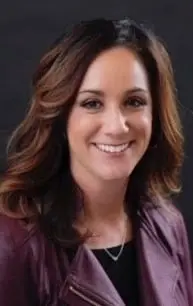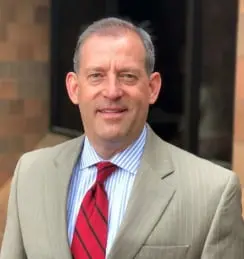 | 1 LU |
 | 1 LU |
A 2021 Deloitte study cites 2.1 million U.S. manufacturing jobs could go unfilled by 2030, This, combined with the need to push toward Industry 4.0 manufacturing presents serious challenges for the competitive health of the U.S. manufacturing sector and economy in general. This is certainly true for the Greenville, South Carolina region, which has many regional and multinational manufacturing companies with lucrative career offerings. Recognizing this, Greenville County Schools (GCS) leadership enlisted the support of local industry partners such as Michelin, BMW, Stueken, and others – all in need of highly skilled employees – to envision a new brand of comprehensive high school, one that begins to address this labor pipeline challenge. The result is Fountain Inn High School (FIHS), a new comprehensive high school focusing on project based, personalized learning centered around integrated Advanced Manufacturing (AM) pathways in the Institute for Automation and Engineering (IAE) with programs such as mechatronics, automation systems, informatics, etc. and focusing on technology and innovation to improve products and processes. FIHS showcases its IAE programs front and center and integrates them into the curriculum as a highly desirable career choice. This intentional choice provides high visibility to students, parents, and potential manufacturing partners, and underscores the IAE as central to the school’s mission and vision of “creating pathways to the future for every student”. Students can earn certifications, degrees, and other credentials that set them up for future success, regardless of post-secondary aspirations. With 77,650 students and growing, and 60% pupils in poverty, you will learn how GCS is creating success with their personalized Graduation Plus plan. To showcase this student empowerment, you will be immersed in a FIHS student journalism project with a student-produced video featuring their day-to-day experiences around their school culture and curriculum. Focused on the learner experience, Maureen Tiller (Principal) and Jeff McCoy (Associate Superintendent for Academics) will take you through the process of forming business partnerships, developing real-world curriculum for the new high school, and most importantly, establishing the new school’s culture with the students. Scott Carlin (Executive Director of Facilities) will discuss the resilience and flexibility of the design for now and in the future, as proven during the school’s opening in 2021. Aimee Eckmann, ALEP, will share the involvement of community business partners and the role of the AM curriculum in the design process. The presenters will highlight ‘resiliency’ in addressing the development of strong community culture among teachers and students, adaptability to change and student support systems around wellness, equity and inclusion.
Learning Objectives:

Maureen received her Bachelor of Science in Special Education as well as a Master of Education in Education Administration and Supervision at Winthrop University. She has certifications in Education Administration K-12, Educational Specialist and Educational Administration from the University of South Carolina. She is currently an Educational Doctoral Candidate in Education Systems Improvement Science at Clemson University. Ms. Tiller is passionate about student voice, school culture and school reform.

Jeff started his career in Greenville County schools at Greer Middle School in 2000. He also served in the role of International Baccalaureate Coordinator at Greer Middle school until moving to the Central Office as an Instructional Technology Specialist. He has served various roles in the district including Distance Learning Coordinator, Director of Instructional Technology, and Director of Academic Innovation and Technology. He earned his Bachelor’s Degree in Elementary Education and his Master’s Degree in Education Technology with a focus on leadership.

Scott began his career as an Air Force Civil Engineer Officer in 1989. For the past 30 years he has served in numerous roles in public service and public and private education with Mercer University and District 5 of Lexington/Richland Counties before joining Greenville County Schools. Scott is an active member of the Association for Learning Environments (A4LE). Scott received his bachelor’s degree from The Citadel. He is a graduate of Air University, AL. He has continued his military service as a Reservist.
This track focuses on Resiliency and addresses how learning environments support the development of students and communities that have the strength and flexibility to withstand adversity and adapt to change. The COVID-19 pandemic demonstrated the essential role that schools have in stabilizing communities during a time of crisis. How do schools support the development of strong community culture among teachers and students? How do schools foster physical and mental health and wellness to ensure all are ready and supported to learn? How do we create learning environments that are strong in intent yet adaptable to change? How do we learn from what does not work and further, learn to take risks daily to expand our comfort zone? What can we learn from research and our responses to past events to inform how to build toward a resilient future where we can withstand what crises and challenges the future brings? Topic areas, seen through the lenses of both Art and Science, include sustainability, physical and mental health, community, school climate and culture, safety, and security.
Primary Core Competency
Community Engagement: Leads the internal and external communities through a discovery process that articulates and communicates a community-based foundational vision, forming the basis of a plan for the design of the learning environment. The vision is achieved through a combination of rigorous research, group facilitation, strategic conversations, qualitative and quantitative surveys and workshops. Demonstrates the skill to resolve stakeholder issues while embedding a community's unique vision into the vision for its schools.